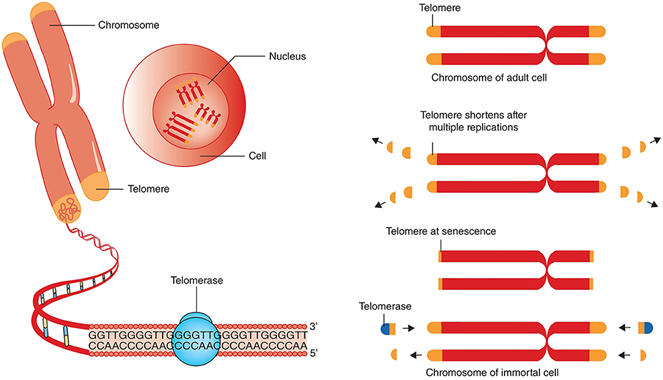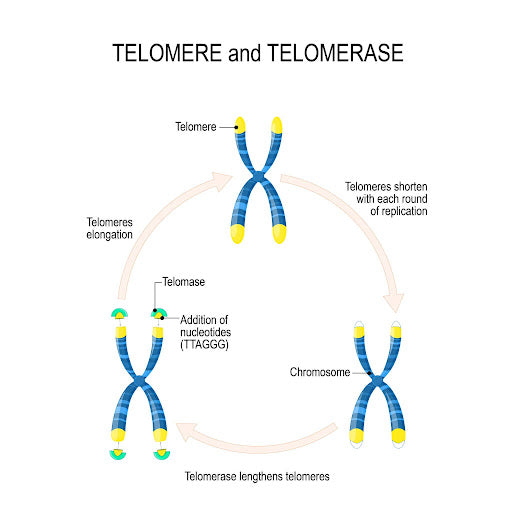The role of telomeres and telomerase
Telomeres are structures at the ends of our chromosomes and are deeply involved in cell lifespan and aging.
Telomeres have two main important roles.
1. It protects chromosomes from damage such as recombination, fusion, and disassembly.
2. Maintains the stability of genetic information and supports the normal functioning of cells.
However, each time a cell divides, the telomeres become shorter little by little. When this shortening reaches its limit, the cell can no longer divide, and phenomena such as "cellular aging" or "natural death (apoptosis)" occur.
In other words, telomeres act like "chromosome caps" and are the key to keeping cells young and healthy.
Telomerase , also known as "telomere synthesis reverse transcriptase," is an enzyme that extends the telomeres at the ends of chromosomes. Normally, telomeres shorten with each cell division, but in cells with active telomerase, these telomeres can be replenished.
This enzyme's activity has been confirmed in some highly proliferative cells, such as those during fetal development and in stem and embryonic cells .
However, its activity is downregulated in many normal adult cells, leading to senescence and cell death.
Interestingly, telomerase activity is extremely high in cancer cells , which gives cancer cells a characteristic of " immortalization " that allows them to continue dividing indefinitely, unlike normal cells.
However, telomerase activity is not limited to cancer cells. It is also found in important cells involved in the repair and regeneration of the body, such as stem cells and germ cells. While it has the potential to provide "immortality," the balance between medical applications and risks is a topic of research.
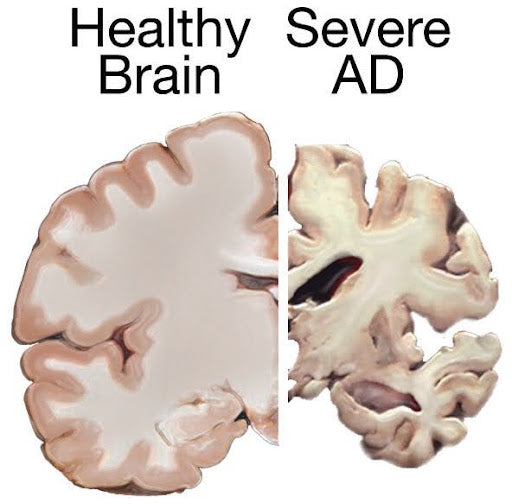
What happens when telomeres shorten?
Aging is a natural part of life for everyone.
No matter how beautiful you are, your appearance will change little by little over time.
As we age, our skin loses elasticity and becomes more wrinkled and saggy.
The freshness of youth fades, but this change is also evidence of the time and experiences we have lived.
It's as if the life you've lived is depicted on your face as a map.

So what happens when telomeres become shorter?
Aging is a part of life, and beauty doesn't last forever - many will tell you this: our skin ages, our brains and our entire bodies lose their youthful elasticity.
Examples of risks associated with short telomeres:
– Death rate from heart disease increased 3.2 times
– Mortality from infectious diseases increased 8.5 times
– Decreasing all-cause survival
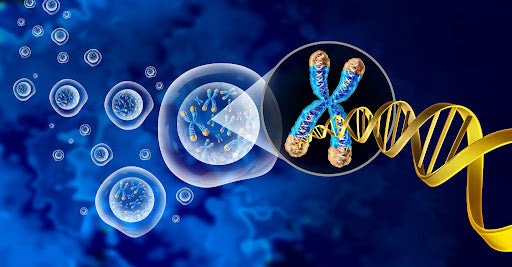
How old are you really?
・It seems like a simple question.
It is based on your age, which is when you were born.
However, we all know that there are people out there who actually look younger than their age.
They have glowing skin, sharp minds, and incredible energy.
-Why is this so?
That's because research has repeatedly shown that cells, organs, and humans have a concept of "biological age."
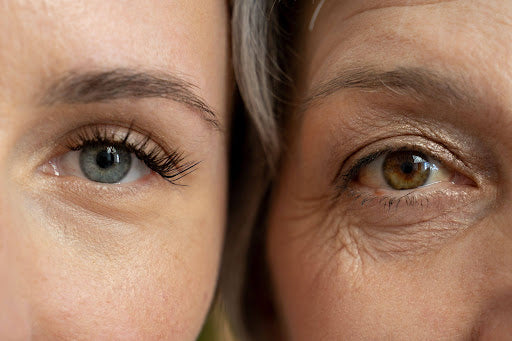
Source: https://www.linkedin.com/pulse/slow-your-aging-process-marisa-donnelly
Is it possible to slow down or even reverse aging?
The answer is of course YES.
This photo shows the changes in aging in women.
Until now, this change has been thought to be typical, common, and irreversible.
But now it is possible to regain your youth.
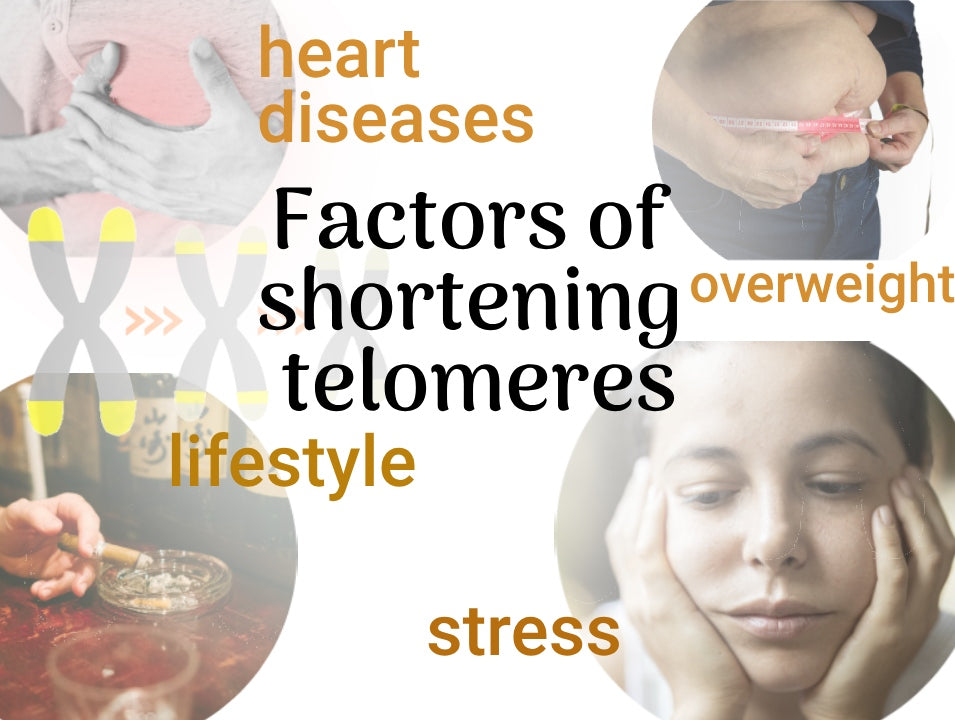
What is the world's first MAF developed by Saisei?
Awakens the body's natural powers and supports youthful health
Saisei, in collaboration with leading research institutes in Japan, has developed an innovative ingredient called MAF (Macrophage Activating Factor).
MAF is a unique product that is the first of its kind in the world and has been patented in Japan.
"How can one product address completely different symptoms and diseases?"
We get this question a lot, and the answer is very simple.
MAF reactivates the body's natural healing power at the cellular level, which has been weakened by age and stress.
By helping cells regain their original functions, MAF does not simply "cure" the body, but rather helps "reset the body to its original healthy state."
For those who want to live better lives with a healthier body and a clearer mind.
Saisei's MAF will be your best ally.
Clinical trial reports






Phase 2 Clinical Trial: Evaluating the Efficacy of MAF Supplements for Rejuvenation and Longevity in Japan
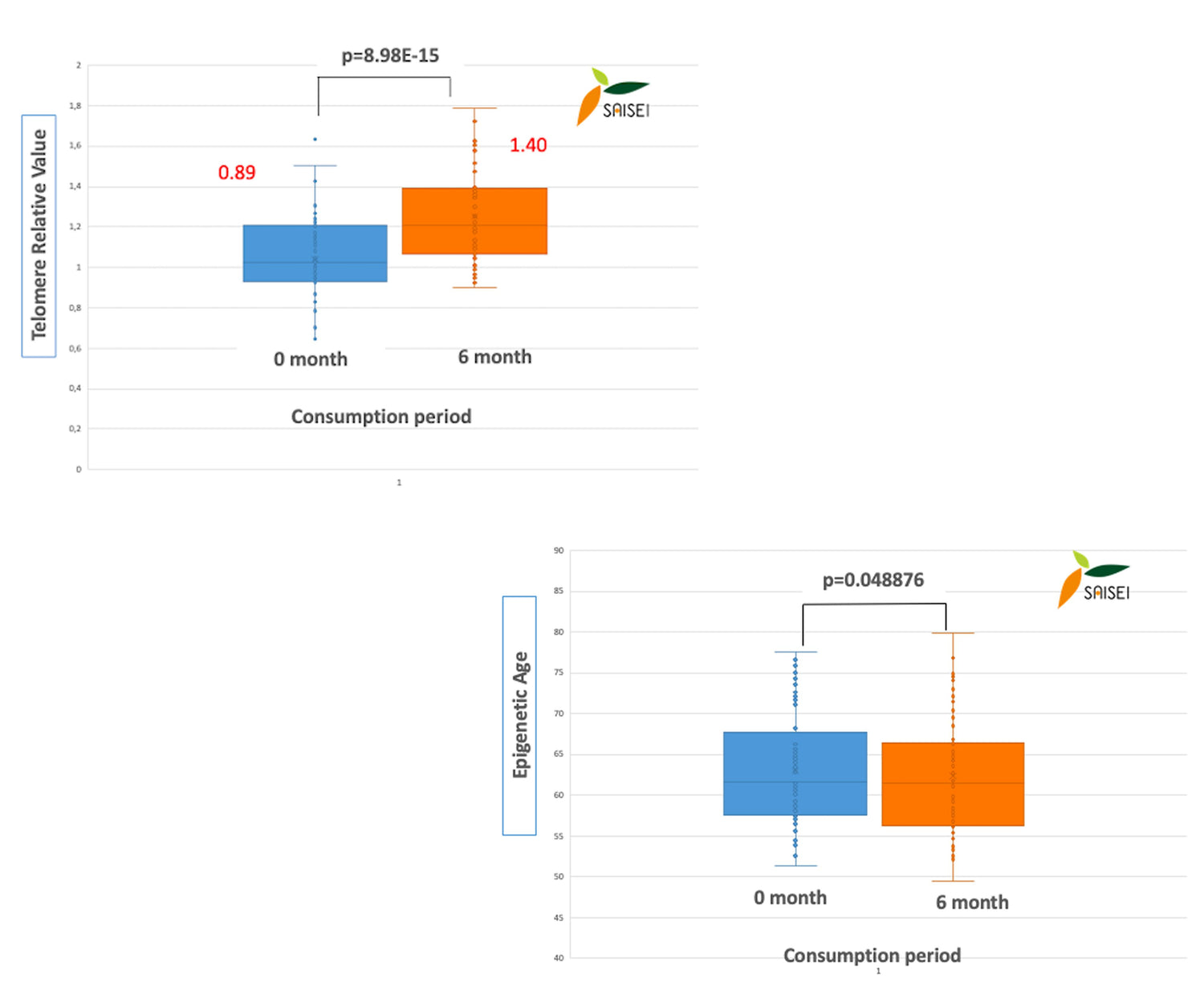
Primary Objective :
-Evaluation of the effectiveness of MAF supplements for rejuvenation and longevity
Secondary Objectives :
・Measurement of telomere length ・DNA methylation analysis including TERT (telomerase reverse transcriptase) ・Age-related gene expression profiling
Protocol Design : Phase 2, interventional, non-randomized, controlled, multicenter study
Study Population : The study population included adult men and women aged 40 years and above.
Exclusion Criteria :
Pregnant women, cancer patients, and patients with serious illnesses
Success indicators :
- Changes in telomere length over time - Changes in biological age over time

Overview and Impact
Results from 161 participants using the MAF triple showed an average increase in telomere length of 12% at three months and 23% at six months.
Additionally, biological age begins to decrease after just six months of using MAF Triple.
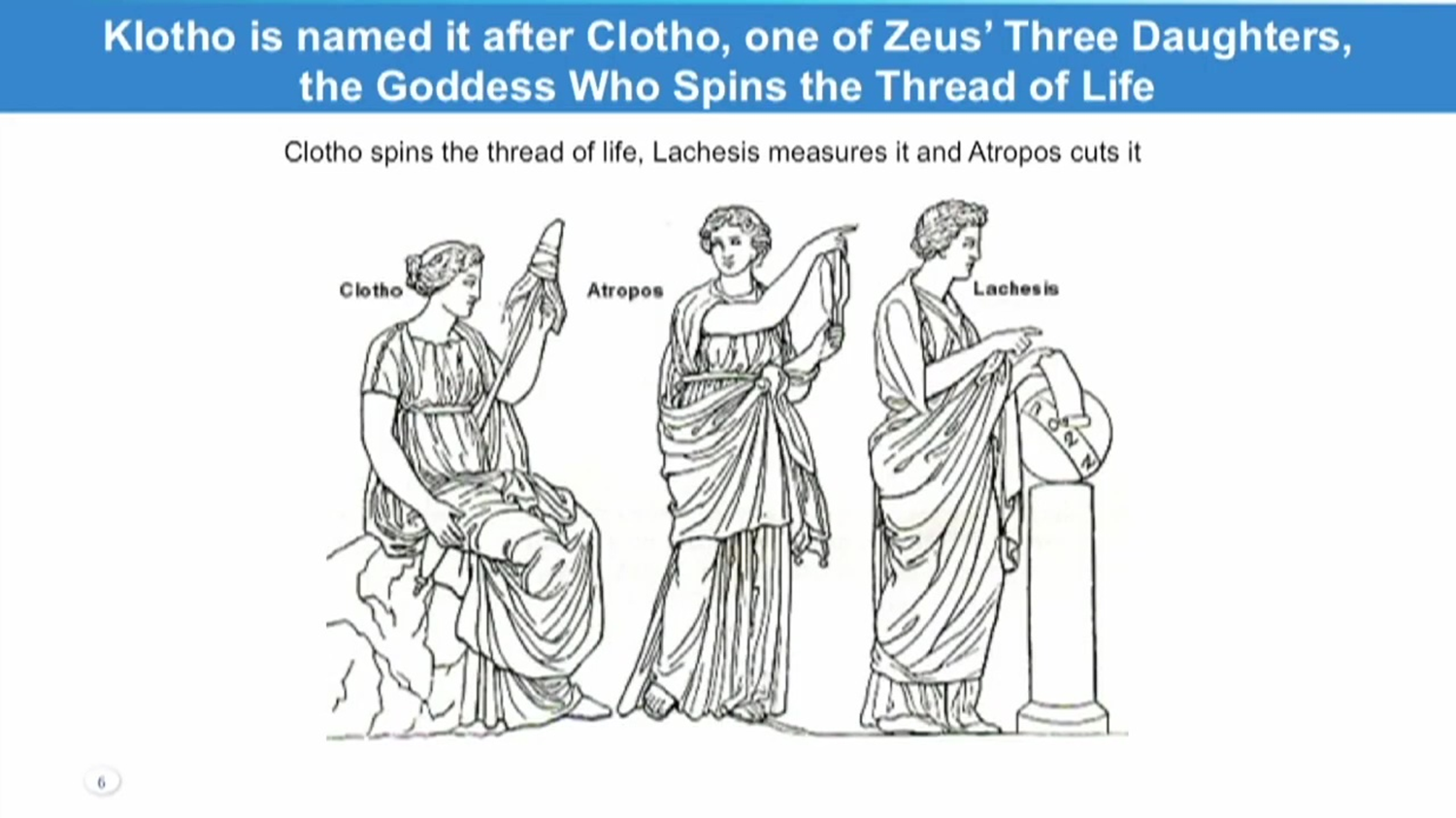
Dr. Carmela Abraham - Klotho: The Key to Longevity
https://www.youtube.com/watch?v=xRyT9-1OGO4
NEW! Phase 2 Clinical Trial: Evaluating the Efficacy and Safety of MAF Triple for Aging and Longevity
https://www.youtube.com/watch?v=cE47aD0UTRw
What is the Klotho gene and how does it work?
Clotho is named after Clotho, one of the ancient Greek goddesses of fate, the goddess who spun the thread of life.
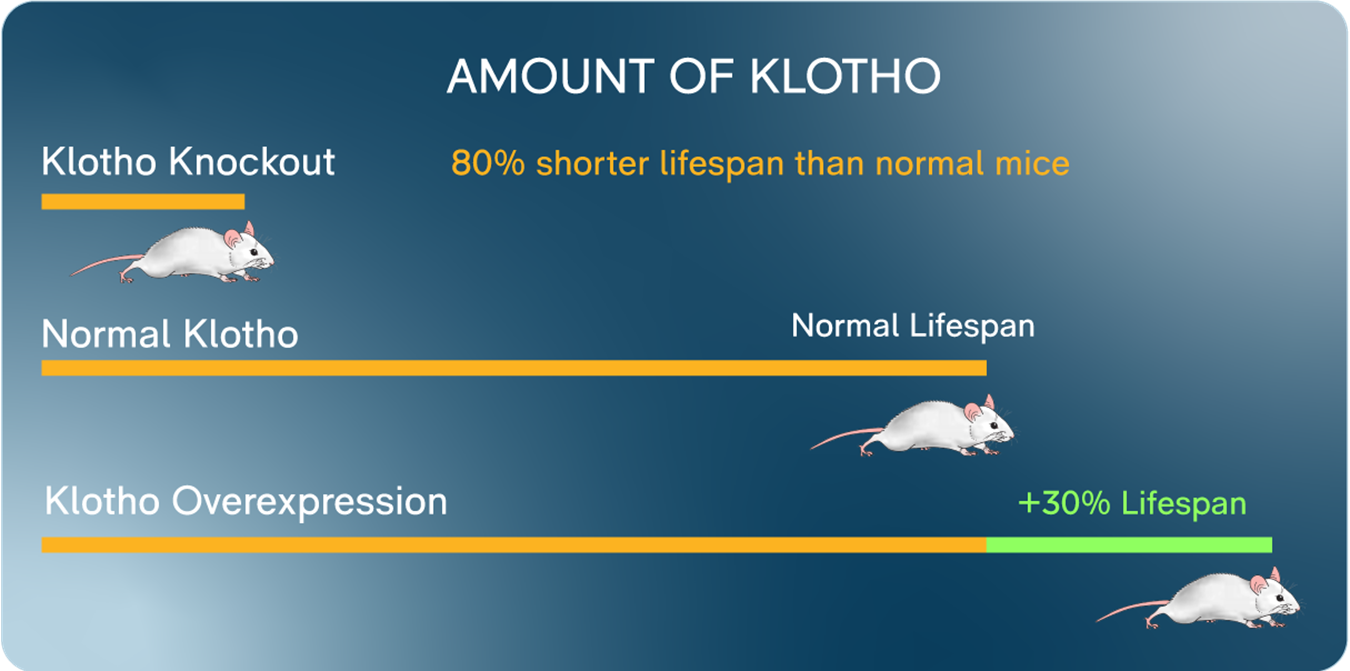
(Kuro-o, M., et al., Nature, 390: 45, 1997)
(Kurosu, H., et al., Science, 309: 1829, 2005)
(modified figure in Klotho TherapeuticsTM)
Deficiency of the Klotho gene has been shown to reduce lifespan by 80%.
Overexpression of the Klotho gene in mice extended their lifespan by 30%.
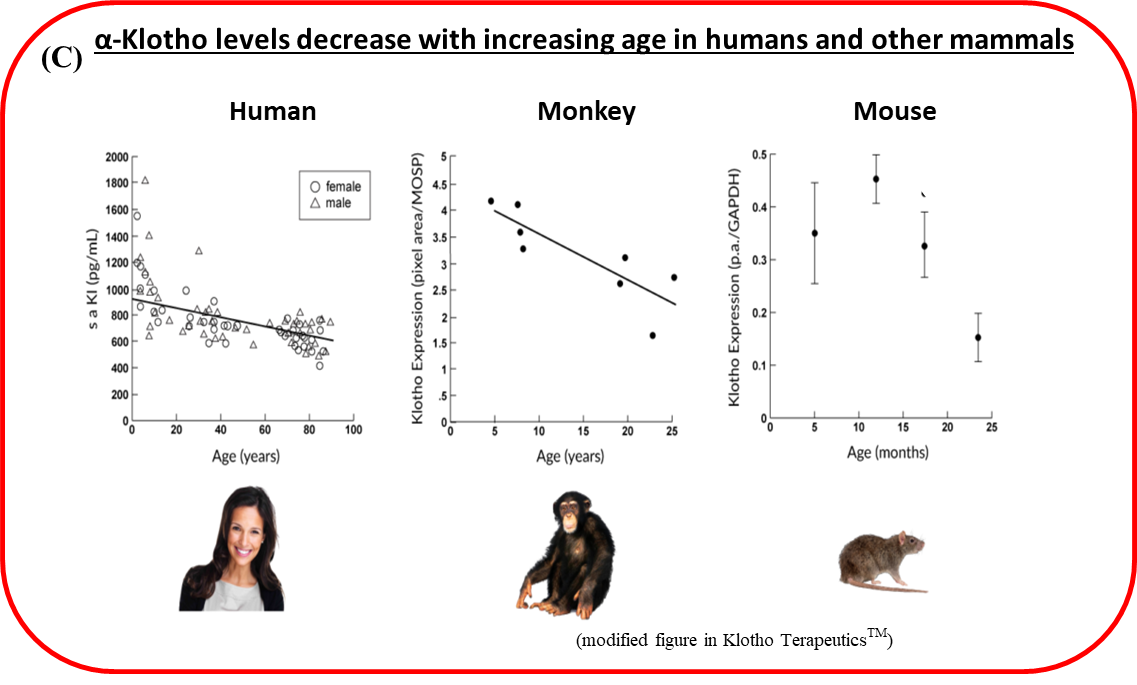
Klotho is an anti-aging hormone found in the kidneys, brain, urine, bloodstream and muscles, making it essential for living a long, healthy life.
In particular, the soluble form of α-Klotho in plasma is easy to measure, and its levels have been confirmed to decrease in humans after the age of 40.
-α-Klotho levels decrease with age in many mammals, including humans.
-Aging is the biggest risk factor for cognitive decline, Alzheimer's disease, and other neurodegenerative diseases.
-Klotho is expected to be a new therapeutic target not only for chronic kidney disease, but also for aging and neurodegenerative diseases.
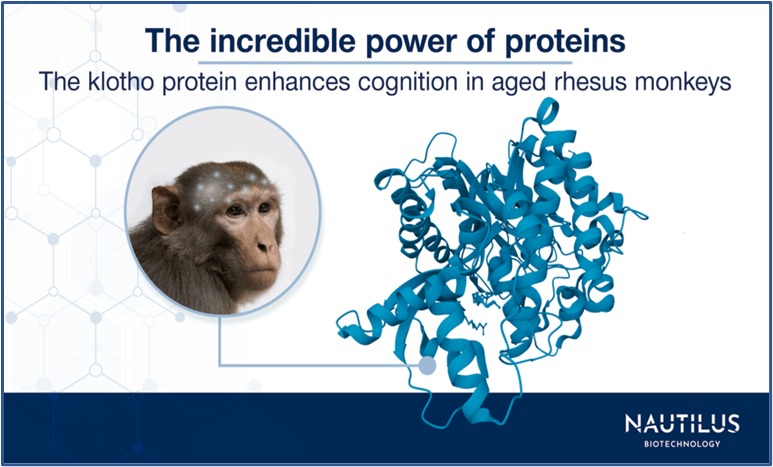
Actions of α-Klotho – Impact on Aging
Approximately 50% of all mammals experience cognitive decline as they age.
- Expression of the Klotho gene is significantly reduced in the brains of aged monkeys.
- Preventing the decrease of Klotho or increasing its levels can help slow the decline in cognitive function and extend lifespan.
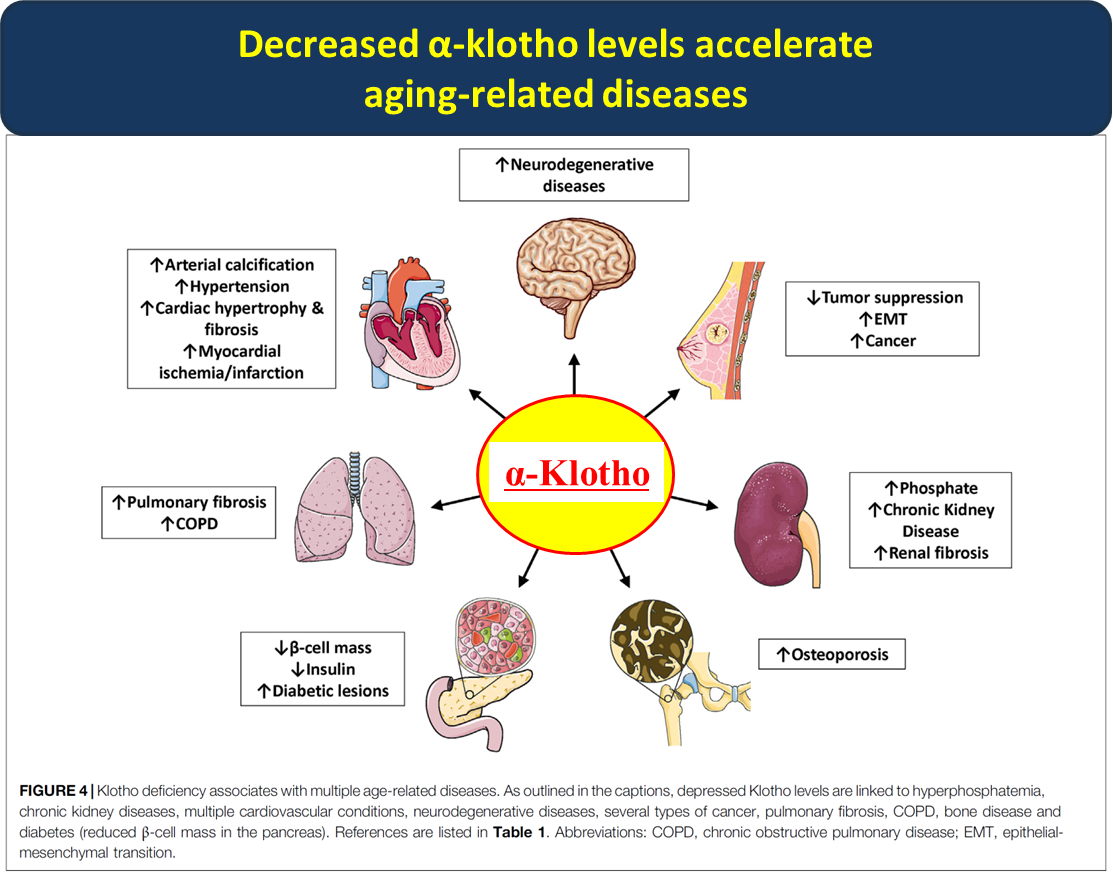
Dubal, D.B., et al., Cell Reports, 2014; Castner, S.A., et al., Nature Aging, 2023
α-Klotho has been shown to improve memory function in aged mice and aged primates (rhesus monkeys).
On the other hand, low levels of Klotho have been reported to be strongly associated with various age-related diseases, including cardiovascular disease, diabetes, sarcopenia, and cognitive decline in humans and experimental animals.
(References: Dubal, DB, et al., Cell Reports, 2014; Castner, SA, et al., Nature Aging, 2023)




